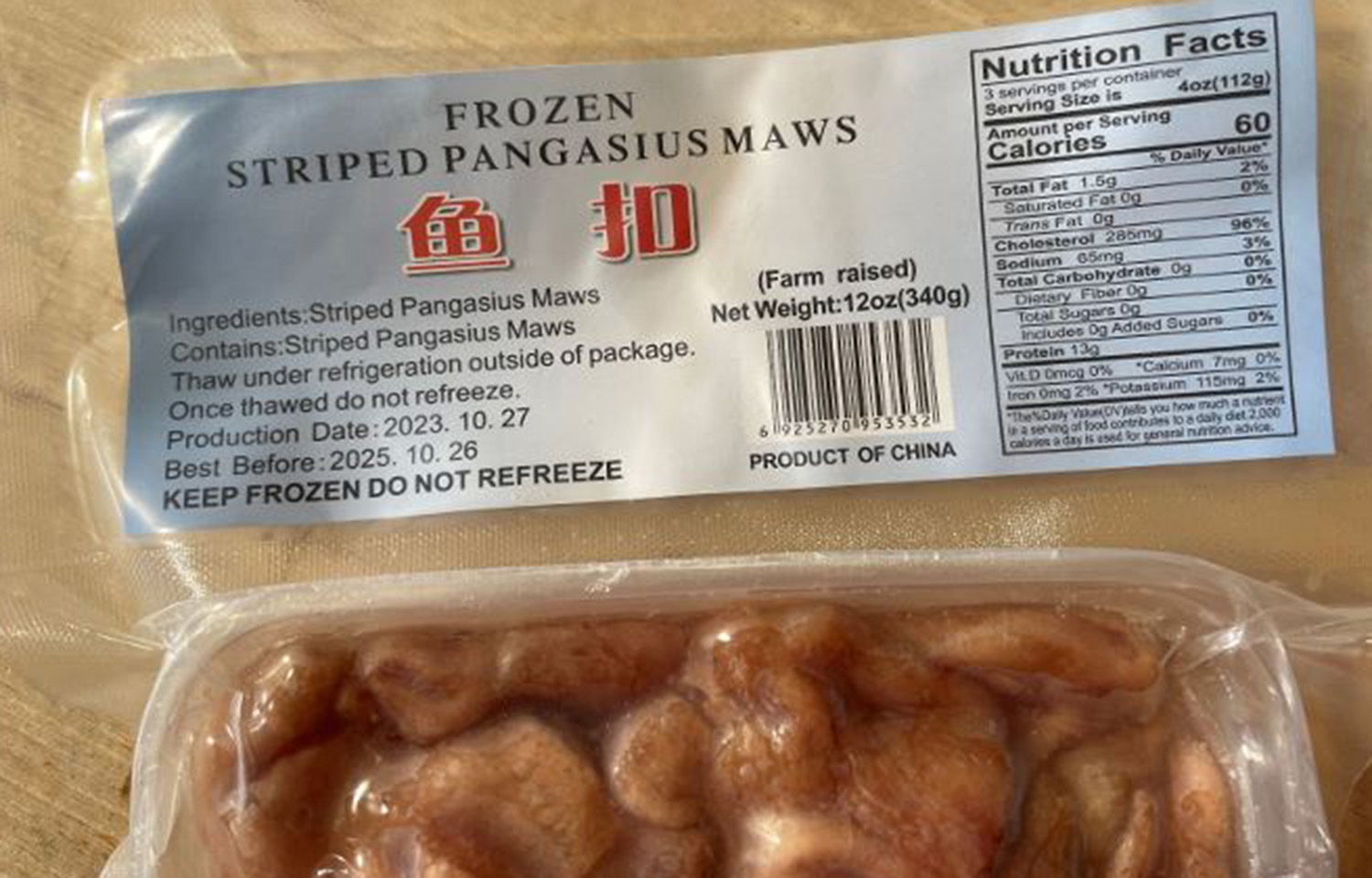The U.S. Department of Agriculture’s Food Safety and Inspection Service (FSIS) has issued a public health alert for imported frozen siluriformes (pangasius) products illegally imported from China.
The products were not certified for export to the U.S. by the government of China as being produced under equivalent inspection. They do not identify a certified establishment number on their packaging, and they were not presented for import reinspection as required, FSIS said.
“These factors make the products ineligible to import into the U.S. and unfit for human consumption,” the agency said. “FSIS is working with other agencies to investigate how these products entered the country.”
FSIS did not name the manufacturer, but the label on the frozen 12-ounce packages states, “Frozen Striped Pangasius Maws.” The maws were packed in plain white shipping cartons devoid of labels or markings.
The pangasius maws are believed to have been shipped to retail and wholesale locations in the U.S. states of New York, Oklahoma, and Pennsylvania. FSIS said it discovered the problem during surveillance activities conducted at a wholesaler.
By law, commercial imports of meat, poultry, and egg products must be produced in certified establishments in eligible countries, and these products must be presented to FSIS for import reinspection prior to entering U.S. commerce.
Raw siluriformes fish products from specific establishments in China are eligible for importation provided the raw materials originate from a certified establishment.
“Retailers who have purchased the products are urged not to sell them. Consumers who purchased the products should not consume them and need to dispose of them properly,” FSIS said. “Consumers are asked to dispose of the products by double bagging them to reduce the possibility of animals accessing the products.”
There have been no confirmed reports of adverse reactions due to consumption of the products.








